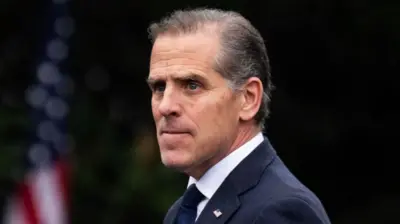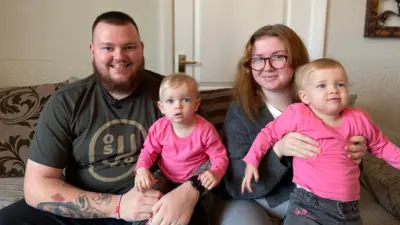We've updated our Privacy and Cookies Policy
We've made some important changes to our Privacy and Cookies Policy and we want you to know what this means for you and your data.
Gay church 'weddings': Your thoughts
The government has announced plans to allow churches to host civil partnership ceremonies in England and Wales.
Ministers sought greater "equality for lesbian, gay, bisexual and transgender people", but said no religious group would be forced to host the ceremonies.
Gay rights campaigners have welcomed the move but want full marriage rights. ≥…»ÀøÏ ÷ News website readers have been reacting to the announcement.
Scott Barclay, Paisley, Scotland
Top Stories
I am in a civil partnership and have been since June 2007.
I am currently waiting with baited breath on this decision as I plan to marry my partner as soon as I legally can.
Top Stories
My partner, David, and I would have had a full marriage if this was available to us, and I find it abhorrent that it is not.
With us personally it is not about being married in a church, though we accept this is a very basic right that a lot of gay Christians feel strongly about.
We just want to have the same rights as our heterosexual friends.
By saying we are civil partners and not a married couple the government is segregating us.
My partner and I are both decent, professional people who pay taxes on time, we do not commit crimes and as such we should not be made to feel as second class citizens.
Lee Gage, Wrexham, Wales
I am in a civil partnership and have been since 2006, but we have been together for 14 years.
It is not the right to get married in church that hinders gay people but the fact that a civil partnership is not a marriage. It is not recognised in countries where marriage between same sex couples is allowed, therefore we are still suffering discrimination.
I am in Spain at the moment - one of the countries that recognises gay marriage but not civil partnerships!
My partner and I don't want to marry in church, we just want to get married legally.
We have a holiday home in Spain, and if one of us dies the other will have to pay up to 81% in inheritance tax, if we were in a so called "marriage" we would pay about 1%.
We could get married in Spain, but would have to get divorced in UK first. This is because the Spanish need a certificate of no impediment for you to get married and we can't get that in the UK because we are in a civil partnership. Its crazy!
Richard Voyce, London, England
Top Stories
My partner, Graham, and I had a civil ceremony in 2007. I am not religious and would not have wanted a ceremony in a church, but it could have been an option for my partner had this announcement been made sooner.
However, what I find outrageous is that, yet again religious institutions are being given an "opt out" clause.
Imagine if the Catholic Church said they weren't going to allow black people to marry. Imagine the outcry there would be.
If it is right to do something, then it is right to do something, full stop. No opt outs.
As a gay man I'm not asking for any more rights than a straight person, but I fail to see why I should be expected to settle for less.
The obvious way out of this is to license the premises. If a religious building wants to be a venue for marriage, whether Church of England, Catholic, Muslim, Jewish etc, it should seek that permission.
Failure to allow same sex unions should then mean it loses its license and the state would not recognise any marriages carried out in it again.
Linda Bates, Edinburgh, Scotland
As I understand it, the current Scottish Government has stated: "While we listen to representations on such issues, we have no current plans to amend the law in this area."
This question is offensive to me as I believe in true equality.
I'm due to have my Civil Partnership in June 2012 in Edinburgh, and by law we are currently barred from having this either in a religious venue or from having any religious content.
This is a basic inequality; I'm not looking for "special" rights, just the right to be equal and to have that recognised socially. "Different but equal" is still different.
The proposed legislation is a good step forward, but I look forward to the day when there's a real choice between marriage and civil partnership for all, gay or straight.
Top Stories
More to explore
Most read
Content is not available








